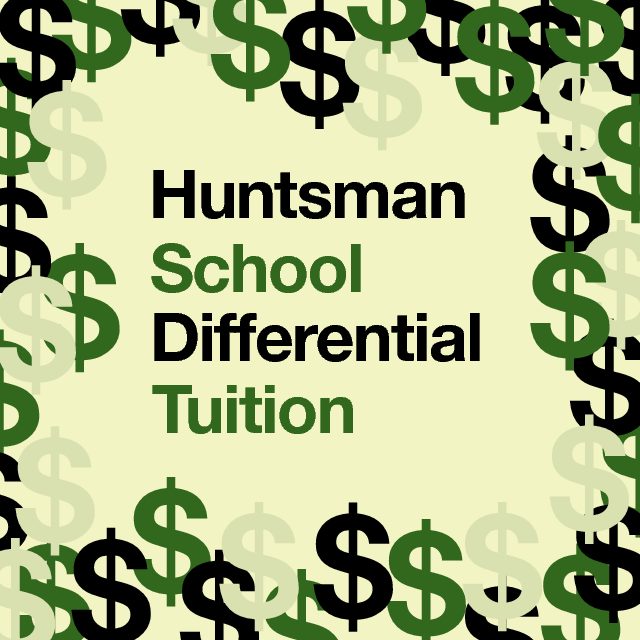Jon M. Huntsman School of Business proposes raising differential tuition
A proposal to increase differential tuition costs for lower-division courses in the Jon M. Huntsman School of Business was presented at the Utah State University Board of Trustees meeting on Friday.
If approved, the proposal would add $15 per credit hour for 1000 and 2000-level courses each year for three years. Differential tuition for these courses is currently around $2 per credit hour, according to the business school’s website.
Jon M. Huntsman School of Business Dean Douglas Anderson and Student and External Affairs Associate Dean Dave Patel presented the proposal.
“Differential tuition is a great investment,” Patel said. “New programs are created, and funding is provided for teachers.” He said the market value the school is producing is worth the increase in costs, especially since there’s been an increase of student enrollment. “While the additional cost is a burden to students, philanthropy makes up for it,” Patel said.
According to Patel, out of the 160 faculty and staff in the business school, 106 of them are supported by differential tuition. “The quality of faculty who are teaching at the 1000 and 2000-level courses wouldn’t be the same,” he said. “We’re very transparent about the uses of differential tuition with students.”
“Price carries a signal of value,” Anderson said. “The higher the value, the better the quality, so people want more of it.” He said differential tuition increased in increments of $15 in the past, which is why it has been proposed in increments of $15 again.
Board member David Peterson said students are great indicators of success at the business school.
Jon M. Huntsman School of Business Sen. Sara Merrill said she has benefited from differential tuition in her career. “This is the next step the school needs to take,” Merrill said. “The cost is very much comparable to other institutions even with differential tuition.” She said she’s received high-class education in Logan, Utah because of differential tuition.
“People come here to recruit us because they recognize the value of the education we’re receiving,” Jon M. Huntsman School of Business student relations team lead Jordan Bell said. “All of the things that prepared me came from differential tuition.”
“If everyone’s tuition was raised a small amount, then funds can be spread more fairly across campus,” Megan Anderson, a USU senior, said. “Otherwise, you’re just racking the tuition up for students.”
Thomas Wilcken, a USU junior studying business administration, said his wife is a master’s student at USU for the Caine College of the Arts, and she pays as much as he does for tuition. “I understand the use of differential tuition to bring in professors and provide money for our buildings, but it’s hard when you don’t have the GPA to get scholarships,” he said.
Wilcken also said for new students looking for classes to take, the change in price for lower-level division of business courses may be a deterrent. “The change in price is not really a burden, especially when using USU’s payment plan,” he said. “I’m all for it since I’m not paying it.”
USU President Noelle Cockett said Focused Fridays at USU conveys to students about the opportunities that come from the business school’s differential tuition.
A vote on this proposal will be taken on March 13, when the USU Board of Trustees meets again.

